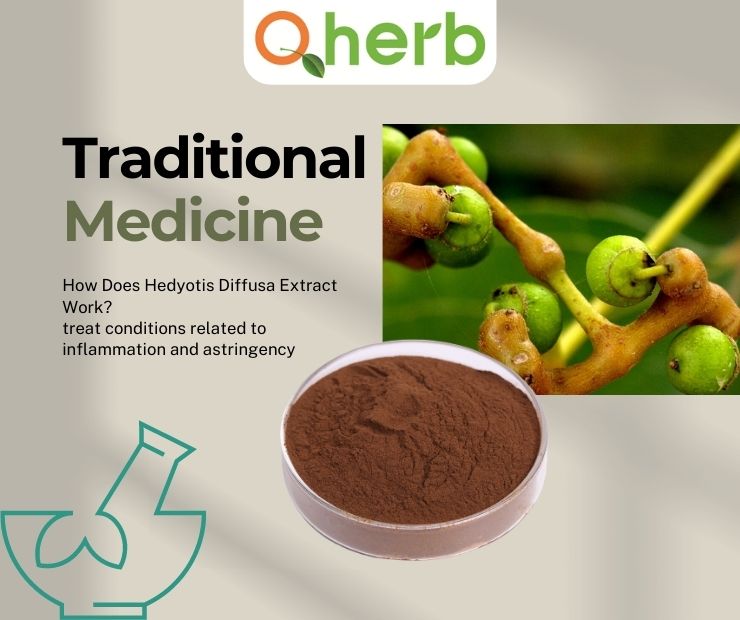The extract from Hedyotis Diffusa is a traditional medicine used by patients to treat conditions related to inflammation and astringency. Hedyotis Diffusa Extract is made from the leaves of the plant Hedyotis Diffusa. This plant belongs to the genus Hedera, part of the Aralia family, and originates in China. The regions where this extract is found include Hong Kong, Japan, Korea, Malaysia, Indonesia, and the Philippines.
Hedyotis Diffusa Extract is widely used in treating conditions where it can treat inflammation. The extract can also be used to treat conditions related to urine retention, such as urinary tract infections and urinary incontinence. Because it is a plant with essential medicinal ingredients, other products, such as Hedyotis Diffusa Extract, are also made from it. However, this product is often sold for a variety of different uses.
Hedyotis Diffusa Extract Working –
- The Extract works by reducing the permeability of cellular membranes. It means it is used to treat conditions with an increased tendency of fluids in the tissues to leak into tissues, such as during inflammation. The active ingredients contained in this extract include pentapeptide-derived flavonoids and flavonol glycosides.
- This extract also prevents mast cells from releasing histamine and other substances that cause inflammation. It also works by preventing the release of substances that cause spasms in the smooth muscles. It also blocks the release of leukotrienes, which are inflammatory mediators produced mainly by the lungs.
- Hedyotis Diffusa Extract has also been shown to affect the nervous system specifically. It works by stopping nerve signals from spreading across the synapses, which is the area where nerves meet muscles. As a result, it prevents pain signals and other signals from being passed to the brain.
- Hedyotis Diffusa Extract can take various forms, such as capsules, tablets, or liquid pills. The standard dosage is 300 mg per day. Because it is a pain reliever, possible side effects may occur with Hedyotis Diffusa Extract. These side effects include nausea, vomiting, breathing difficulties, and skin reactions. Users are advised to consult with a doctor if they have had adverse reactions from similar products or other medical conditions before taking this product.
- There are also contraindications associated with this extract. For example, It should not be used in people with a bleeding disorder, or their medication may need to be adjusted. In addition, some people should not use this product as they may be unable to tolerate it. These include people with cardiovascular disease, gastrointestinal disease, or those in the first trimester of pregnancy. Finally, users should consult with a doctor before taking this extract if they have a history of liver problems or an allergy.
Uses of Hedyotis Diffusa Extract –
- The extract is usually taken as a supplement and used with other accessories. The extract can be taken in tablets, capsules, or liquid pills. Some forms of this extract may be more appropriate for children, such as liquid tablets, juice, and gelatine capsules. People of all ages can take it.
- The extract from Hedyotis Diffusa can also be used for cosmetic purposes. For example, it can be applied to the skin, nails, and hair. It can also be used in the preparation of bath products. The extract from Hedyotis Diffusa can also be used for perfumes, creams, and lotions. It is also used for fragrance, which helps scent cosmetics such as hair products, perfumes, and perfumed soap.
- This extract is mainly used to relieve the symptoms of inflammation in the respiratory tract. The section from this plant can be used with other medicines, such as antibiotics and steroids, to treat conditions related to dyspnea, chest tightness, and throat and nose infections.
- This extract also treats urinary tract inflammation, such as infection and bladder stones. In addition, the section from Hedyotis Diffusa can be used with other medicines to stop the pain caused by a urethral infection.
Hedyotis Diffusa Extract is an herbal plant extract that contains flavonoids and other nutrients that have anti-inflammatory properties. This extract is also a powerful antioxidant, which means it can work as a preservative.








